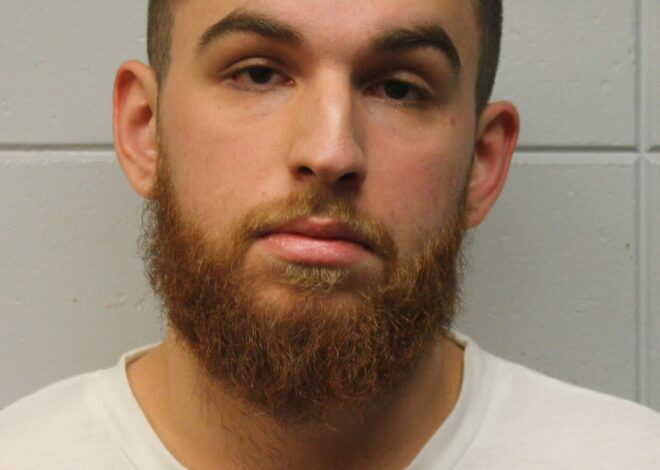Excerpts From Recent South Dakota Editorials
Editors: Please note that The Associated Press welcomes editorial contributions from members for the weekly Editorial Roundup. Three editorials are selected every week. Contributions can be made by email at apsiouxfalls@ap.org.
___
Yankton Daily Press and Dakotan, Yankton, Oct. 13, 2015
Ethics board is good idea, but …
South Dakota lawmakers should give serious consideration this winter to resurrecting the ethics commission — a nonpartisan, independent panel that would hear complaints and reviews of governmental ethics violations — that this state ditched in 1979.
Yes, they SHOULD … but smart money says they won’t.
A proposal calling for such a panel is promised from Democratic Rep. Peggy Gibson. South Dakota is one of only nine states lacking a watchdog ethics board, according to StateIntegrity.org
However, you can’t escape the feeling that the proposal will be one of those ideas that will die in some committee far removed from the main legislative floors.
Such an off-hand fate, should it come about, feels rather ironic these days.
It would come after so much time was spent on the EB-5 visa scandal last year, an ethics case that broke open with the suicide of a public official.
Now, we face the ethical matters surrounding the case involving the Mid-Central Educational Cooperative, based in Platte. Again, public knowledge of this was prefaced by tragedy: a house fire that turned out to be a murder-suicide of a family of five. It came in the wake of an investigation of the personal finances of a manager who was also involved in the federal GEAR UP grant program in South Dakota.
The EB-5 incident prompted Gibson to propose an ethics commission last year but to no avail.
The Mid-Central incident will compel her to do the same this winter.
Most Republicans are opposed to it, arguing that the legislative oversight panel essentially performs the same function of an ethics panel — except it involves legislators policing themselves.
However, in the wake of two high-profile scandals, something more seems needed.
The ethics commission would be an independent, nonpartisan board that could deal with such issues without possible political pressures.
And that kind of board makes sense — and it would do so even without the recent scandals.
Democrats favor this measure, noting the longtime control Republicans have had on the Legislature. While that tends to cast this issue in a partisan light, the fact is that one-party dominance of any governing body can lead to abuses, large and small, in part because of diminished systemic accountability.
Beyond the party labels, our legislative branch is structured to allow lawmakers of either party to have long careers in Pierre, provided they are willing to switch chambers every few years. This creates a culture of bureaucratic entrenchment that really demands an outside watchdog to serve as a balance.
StateIntegrity.org. gave the state an “F” rating for its governmental ethics, noting: “South Dakota has neither comprehensive state ethics laws nor an ethics commission to oversee state officials and bureaucrats. And it comes up short in requiring public officials to disclose financial details.” (It also noted the lack of open government, but acknowledged that issue has been addressed somewhat in recent years.)
In the wake of what we’ve seen in the last two years — and frankly, what we still don’t see now — an ethics commission seems like a reasonable consideration for this state. It’s too bad the idea probably won’t go anywhere this winter. On the other hand, maybe that fact only reinforces the case for such a panel.
___
The Daily Republic, Mitchell, Oct. 8, 2015
Harrisburg’s focus in the right place
We don’t believe we’ve ever heard someone react so positively to getting shot.
But Kevin Lein, the principal of Harrisburg High School, told us this week the shot that went through his ulna, humerus and then into his chest was, “just a bullet.”
On Sept. 30, a Wednesday, Lein said he was sitting in his office when a student rounded the corner and shot him with a handgun. Authorities later identified that student as 16-year-old Mason Buhl. On Monday, a grand jury indicted Buhl on charges of first-degree attempted murder and commission of a felony while armed with a firearm.
Wednesday, Lein, who has worked and coached at schools in Mitchell and Alexandria, spoke openly about what happened. But despite being through an experience that would traumatize most people, Lein remains remarkably upbeat.
He’s not focused on the rhetoric swirling around this and other, more tragic school shootings, like the massacre at Sandy Hook Elementary School that killed 26 people in 2012, or last week’s deadly shooting at a community college in Oregon.
Such events generally release a firestorm of calls to action from gun control advocates and mental health professionals. While Lein did not dismiss those concerns, he doesn’t see that as the heart of the issue.
“I do think the real problem is that (the student) had a different way of thinking. How do we get him back where his heart and his mind are right?” he said.
Such is Lein’s focus.
Lein is not upset with the shooter; he’s concerned about his well-being. Lein feels people only act out because they feel desperate, hopeless or alone. So he told his family to pray for the shooter, and to seek out ways to help others who may be in pain.
How many of us, if we were shot, would be so gracious and forgiving?
Lein is also not in favor of an increased gun presence in schools, which we agree seems like a potentially hazardous knee-jerk response to tragedy.
When Lein saw the shooter enter his office, he had just enough time to raise his hands in an attempt to protect himself, but that was it. Harrisburg already has a school resource officer — who is equipped with a firearm — but Lein said he was in a different building at the time of the shooting. Even if he had been there, Lein isn’t sure it would have changed the outcome.
“In this instance, this is just my total judgment, there’s absolutely no way it would have been stopped whether somebody had a gun or not. And you can’t arm everybody,” he said.
What happened was frightening, but law enforcement officials have said the school did everything right, and we applaud its vigilance — and the heroism of Assistant Principal Ryan Rollinger, who tackled the shooter and subdued him with help from Athletic Director Joey Struwe.
Despite last week’s events, Lein is confident the school is safe, and said it’s important to him to make sure his students and staff members also feel safe. He’s also determined to do what he can to help his others use the shooting as a way to learn and grow and reach out to others.
And even though the world changed for everyone in Harrisburg last week, Lein said one thing remains the same:
“The one thing I don’t think differently of is my incredible staff, my terrific students, my fantastic community,” he said. “That hasn’t changed at all, in any way.”
___
Watertown Public Opinion, Watertown, Oct. 14, 2015
Money eventually gets too large to ignore
At last count there were 13 petitions circulating in hopes of getting enough signatures to land on South Dakota’s 2016 ballot. Two of them caught our eye because despite their controversial nature they could be the answer to a lot of problems facing South Dakota.
One is a measure to legalize marijuana for medical use. If approved, patients with a debilitating condition, as determined by a doctor, could receive a state-authorized registration card and possess, cultivate and use marijuana. Designated caregivers could also possess and use marijuana.
The measure also allows for marijuana testing, manufacturing and cultivation facilities, as well as dispensaries. While the possession, use, cultivation and distribution of marijuana are still illegal under federal law, advocates say legalizing the drug for medicinal purposes could help people with rare conditions.
Another measure seeks to decriminalize the possession of one ounce or less of marijuana or marijuana paraphernalia. If approved, those in possession of one ounce or less of marijuana or marijuana paraphernalia would be subject to a civil penalty, rather than the current criminal penalty. Currently, possession of two ounces of marijuana or less is a Class 1 misdemeanor punishable by up to 1 year in jail, a $2,000 fine or both.
We’ve commented on marijuana on the ballot before and that similar votes have been defeated. We’ve also said that sooner or later there’s a good chance South Dakota will approve the use and possession of marijuana either for medical purposes and/or recreational purposes. The reason is simple: There’s just too much money to ignore forever.
Consider states that have already approved legislation and made marijuana legal just like tobacco, alcohol or other substances. In Oregon, where legal recreational sales began earlier this month, pot retailers pulled in an estimated $11 million — more than double the $5 million worth of recreational marijuana sold in Colorado the first week it was legal to do so there.
Legal recreational cannabis sales in Colorado began last year. According to sales data from Colorado’s Department of Revenue released Friday, sales of recreational pot topped $59.2 million for last September, while medical marijuana dispensaries pulled in $41.4 million, for a combined $100.6 million — the highest monthly total since legal recreational cannabis sales began there in January 2014. That’s one green creating a lot more green for state lawmakers to figure out how to spend.
By the way, September was the seventh time in eight months that marijuana sales in Colorado exceeded the previous month’s total. In May, combined recreational and medical sales ($74.31 million) fell marginally from April’s $74.64 million.
In Washington state, retail pot sellers had been enjoying month-to-month jumps until July, when revenues from recreational marijuana were $31.1 million, or down about 6 percent from June, according to data from the state Liquor and Cannabis Board. Despite the dip, Washington’s recreational pot sales are on pace to surpass $300 million this year.
Now let’s say, for the sake of argument, South Dakota some day decides to follow suit. The problem finding the money needed to raise teacher salaries would almost certainly disappear. So too would coming up with the money needed to replace and repair highways, roads and bridges across the state.
Imagine what a large infusion of cash from pot sales could do toward expanding Medicaid roles. We can go on and on about what that kind of cash could do in South Dakota.
We’ll be the first to admit that if legalized marijuana became a reality in South Dakota revenue levels here would almost certainly be lower than in more populous states like Colorado, Oregon and Washington. We might have a better idea of what revenue potential might be after the Flandreau Santee Sioux Tribe starts selling pot in a few months. That’s legal because sales will be on tribal property.
Like we’ve said before, regardless of how you feel about pot, there’s too much money at stake in legal marijuana to ignore forever.


